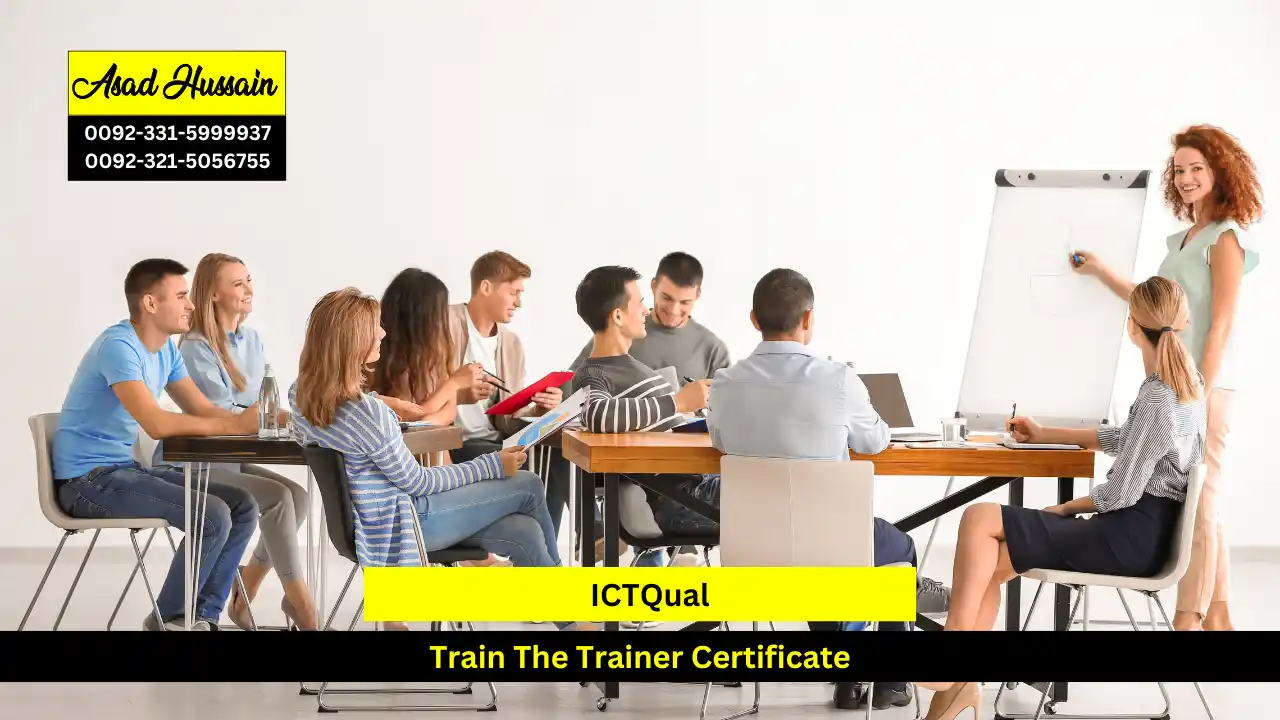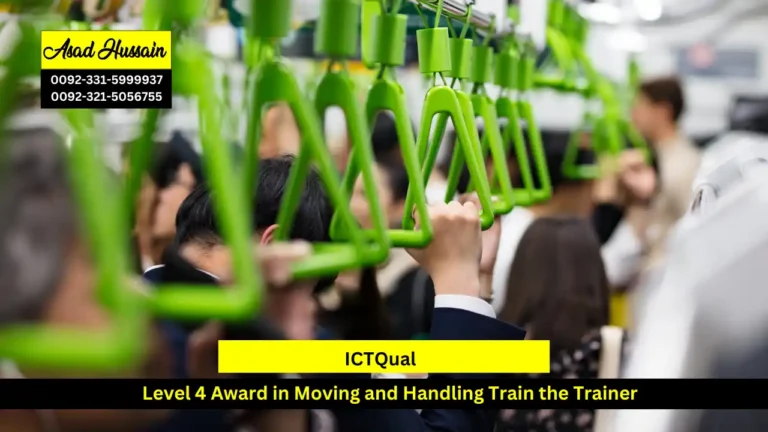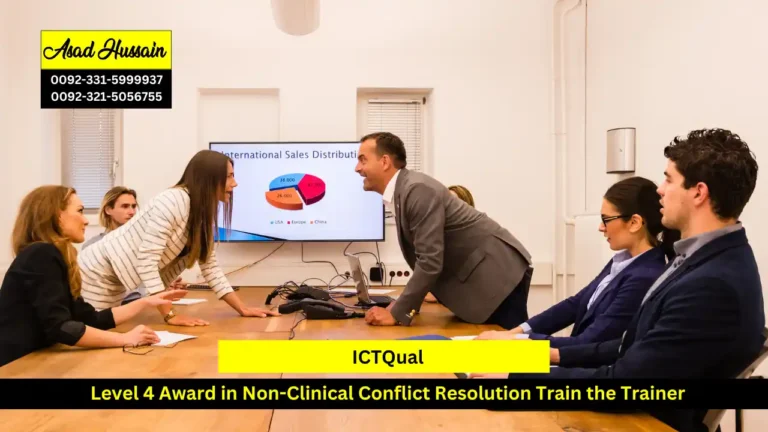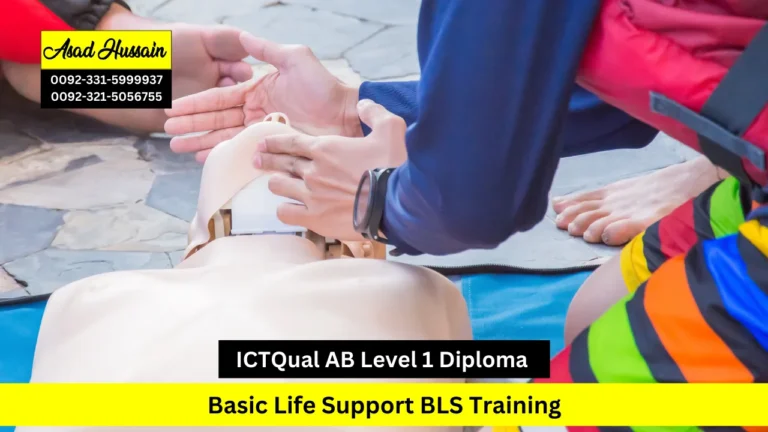In today’s dynamic workplace, the ability to effectively impart knowledge and skills is a hallmark of successful professionals across industries. Whether you’re looking to step into a training role or enhance your existing expertise, the ICTQual Train The Trainer Certificate offers a robust framework designed to empower aspiring trainers with essential tools and strategies.
The ICTQual Train The Trainer Certificate is a comprehensive program tailored for individuals keen on mastering the art and science of training delivery. Accredited by ICTQual, a leading organization in educational certification, this certificate equips participants with the skills needed to excel as trainers in diverse professional settings.
Getting started with the ICTQual Train The Trainer Certificate is straightforward. Participants typically undergo structured training sessions led by experienced trainers themselves. They engage in interactive learning activities, receive personalized feedback, and gain access to resources that support their professional growth.
The ICTQual Train The Trainer Certificate stands as a testament to the commitment to continuous learning and professional excellence. It equips participants with the knowledge, skills, and confidence needed to deliver effective training sessions that drive organizational success and individual development. Whether you’re looking to embark on a new career path or elevate your current role, investing in this certificate can be a pivotal step towards realizing your training aspirations.
Are you ready to unlock your potential as a trainer? Explore the ICTQual Train The Trainer Certificate and embark on a journey towards shaping minds, empowering learners, and making a lasting impact in the world of training and development.
Program Highlights
Mandatory Units
- Module 1: Getting Started
- Module 2: Understanding Training and Facilitation
- Module 3: Gathering Materials
- Module 4: Creating a Lesson Plan
- Module 5: Choosing Activities
- Module 6: Preparing for the Workshop
- Module 7: Getting Off on the Right Foot
- Module 8: Delivery Tips and Tricks
- Module 9: Keeping it Interactive
- Module 10: Dealing With Difficult Participants
- Module 11: Tackling Tough Topics
- Module 12: Wrapping Up
- Participants must possess a minimum of a high school diploma or equivalent qualification. A bachelor’s degree or higher in any field is preferred but not mandatory.
- While prior experience in training or related fields is not mandatory, participants with experience in teaching, coaching, mentoring, or facilitating group sessions will find the concepts covered in the course easier to grasp. However, individuals from diverse professional backgrounds are welcome to apply.
- Proficiency in English is required as the course materials, discussions, and assessments will be conducted in English. Participants should be able to understand, communicate, read, and write effectively in English.
- Participants should have access to a reliable internet connection and basic computer skills, including familiarity with word processing, email, and internet browsing. Access to a computer with audio and video capabilities is recommended for participating in virtual sessions, webinars, and online discussions.
Getting Started
- Orientation to Training: Understand the importance of training and facilitation in professional development.
- Setting Objectives: Define personal and organizational objectives for the training program, aligning them with desired outcomes.
Understanding Training and Facilitation
- Roles and Responsibilities: Define the roles and responsibilities of a trainer and facilitator in creating a conducive learning environment.
- Facilitation Techniques: Explore facilitation techniques to engage participants actively and foster collaborative learning.
Gathering Materials
- Resource Identification: Identify and gather relevant materials and resources necessary for effective training delivery.
- Material Organization: Organize training materials systematically to support learning objectives and enhance accessibility for participants.
Creating a Lesson Plan
- Lesson Structure: Develop a comprehensive lesson plan outlining objectives, content, activities, and assessments.
- Alignment with Objectives: Ensure that the lesson plan aligns with training objectives and addresses participants’ learning needs effectively.
Choosing Activities
- Activity Selection: Select appropriate activities and exercises to reinforce learning objectives and engage participants actively.
- Variety and Engagement: Incorporate a variety of activities to cater to different learning styles and preferences, ensuring continuous engagement throughout the training.
Preparing for the Workshop
- Logistics and Setup: Plan logistics and prepare the training venue to create a comfortable and conducive learning environment.
- Technical Setup: Ensure technical equipment and tools are operational, supporting smooth delivery of training materials and activities.
Getting Off on the Right Foot
- Icebreakers and Introductions: Use icebreakers and introduction techniques to establish rapport and create a positive atmosphere among participants.
- Setting Expectations: Communicate training objectives, expectations, and ground rules to participants to set a clear framework for the workshop.
Delivery Tips and Tricks
- Effective Communication: Apply effective communication techniques to deliver content clearly and facilitate understanding.
- Body Language and Voice: Utilize body language and vocal techniques to enhance engagement and maintain participant interest throughout the session.
Keeping it Interactive
- Interactive Techniques: Implement interactive techniques such as discussions, group activities, and simulations to promote active participation.
- Feedback Mechanisms: Establish feedback mechanisms to gauge participant comprehension, address questions, and adapt training delivery as needed.
Dealing With Difficult Participants
- Conflict Resolution: Identify strategies for managing conflicts and addressing challenging behaviors among participants.
- Maintaining Focus: Maintain focus on learning objectives while addressing participant concerns and maintaining a positive learning environment.
Tackling Tough Topics
- Sensitive Topics: Approach sensitive or complex topics with sensitivity and professionalism, encouraging open dialogue and mutual respect.
- Facilitation of Discussions: Facilitate constructive discussions on tough topics, ensuring diverse perspectives are heard and respected.
Wrapping Up
- Summary and Review: Summarize key learning points and review training objectives with participants.
- Evaluation and Feedback: Conduct participant evaluations and gather feedback to assess training effectiveness and identify areas for improvement.
This course is designed for individuals aspiring to excel in the field of training and facilitation across various industries. It caters to professionals who are looking to transition into a training role or enhance their existing skills in delivering impactful learning experiences. Whether you are a seasoned trainer seeking to refine your techniques or someone new to training hoping to acquire foundational knowledge, this course provides a structured framework to develop competence in designing lesson plans, engaging participants with interactive activities, managing diverse learner needs, and handling challenging training situations effectively. It is ideal for educators, corporate trainers, HR professionals, consultants, and anyone passionate about fostering learning and development in organizational settings.







